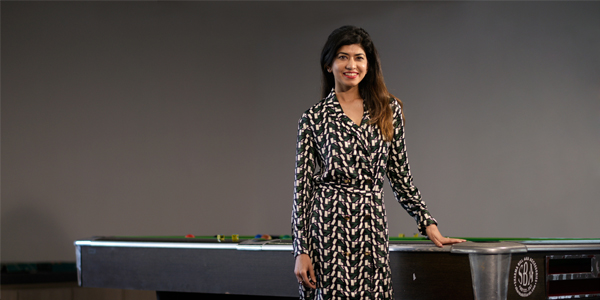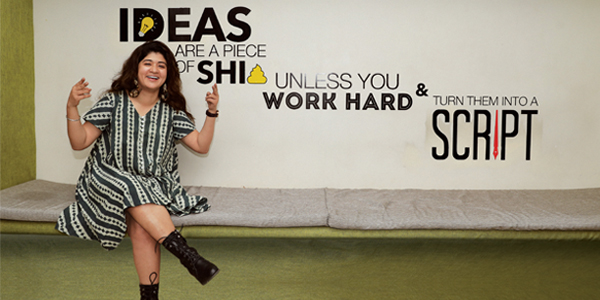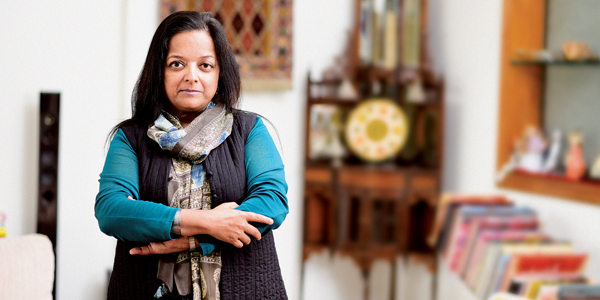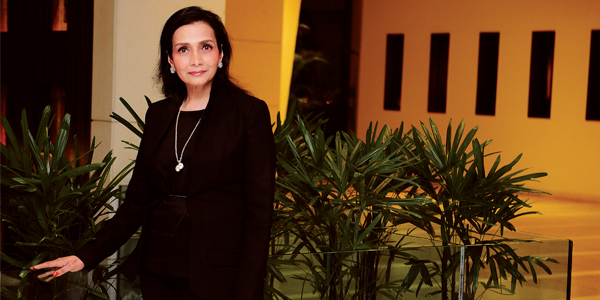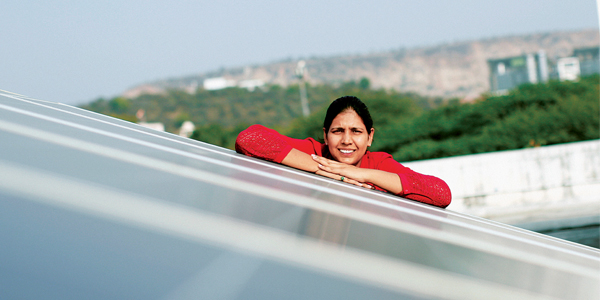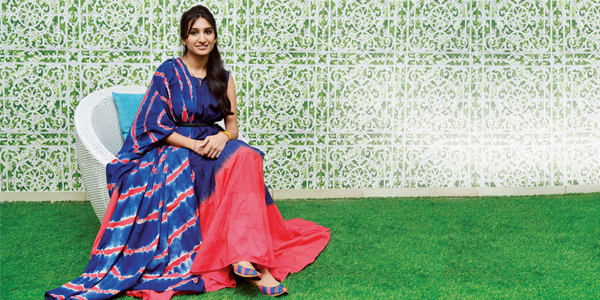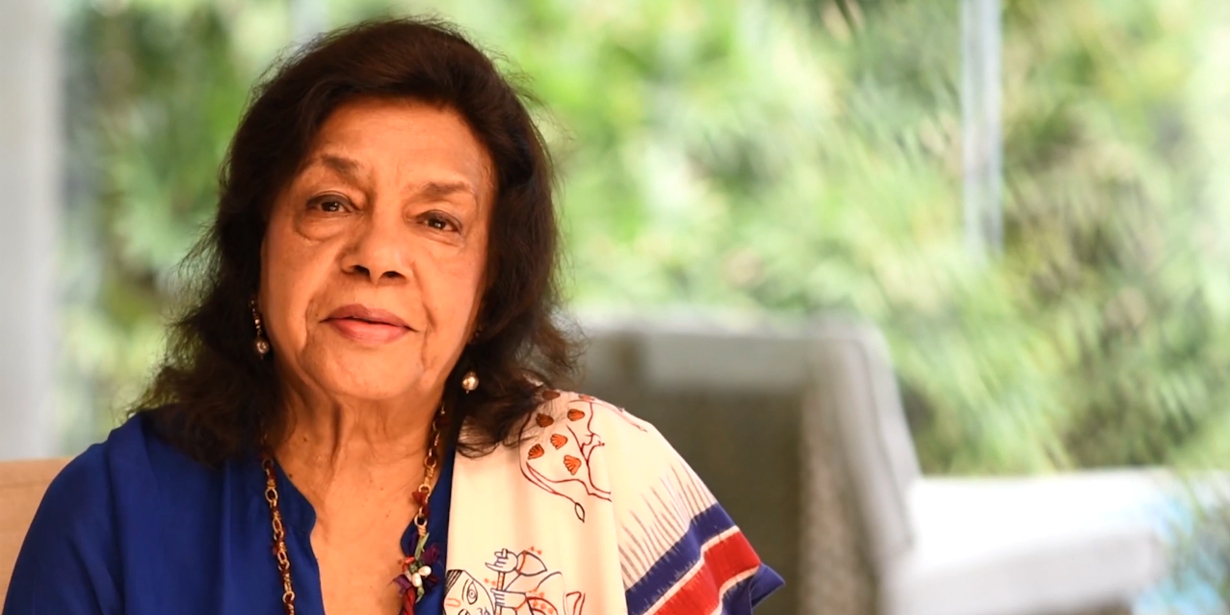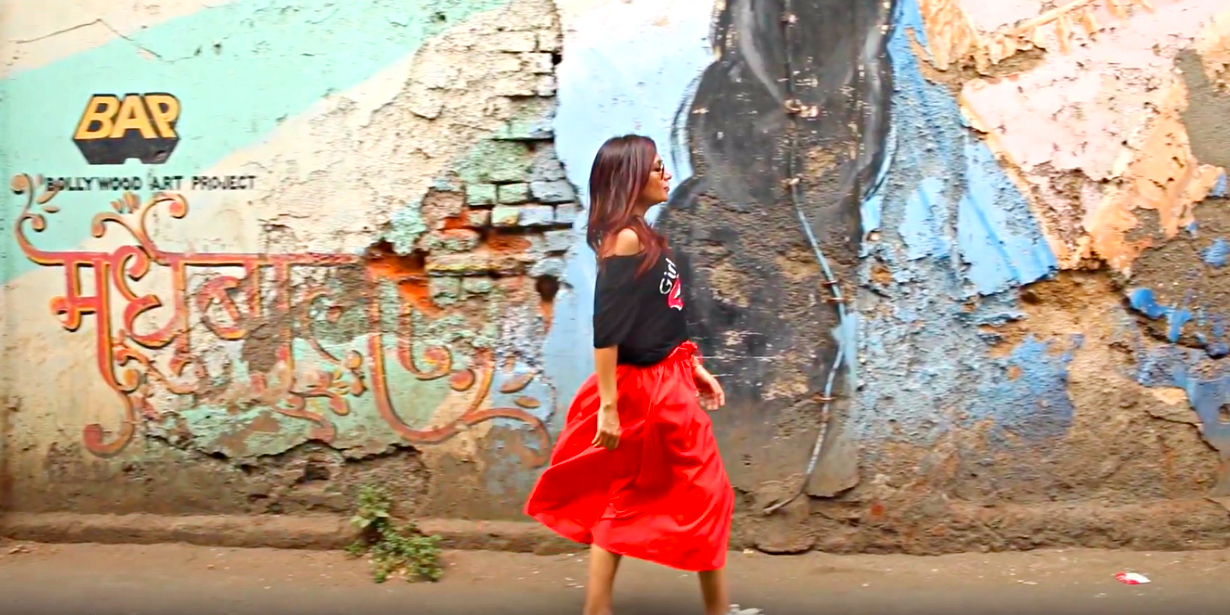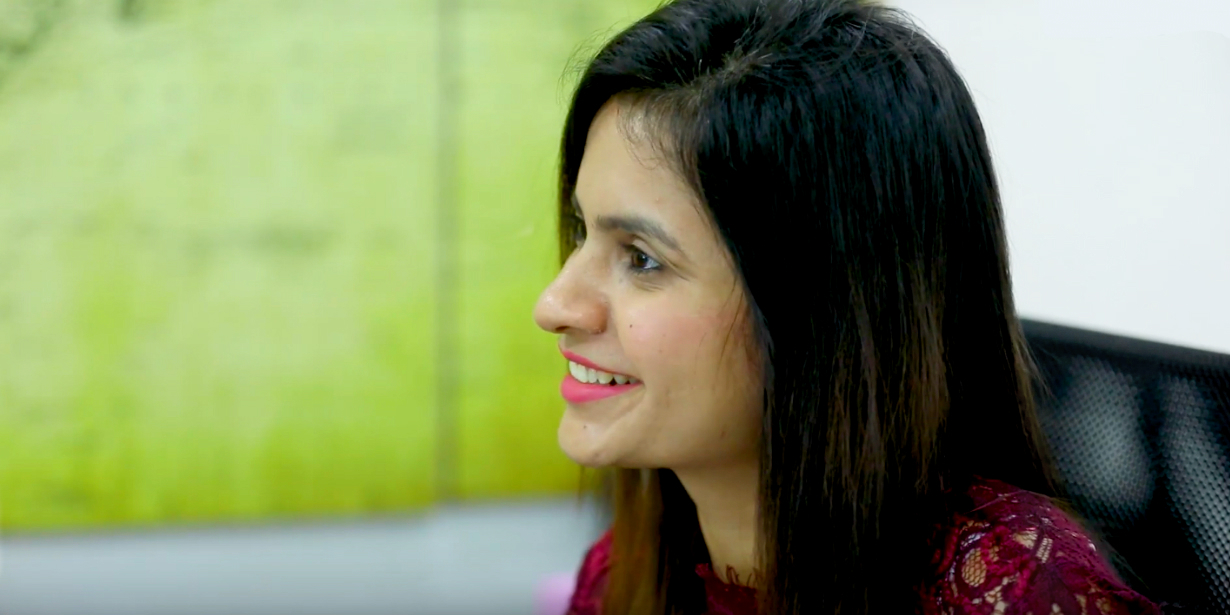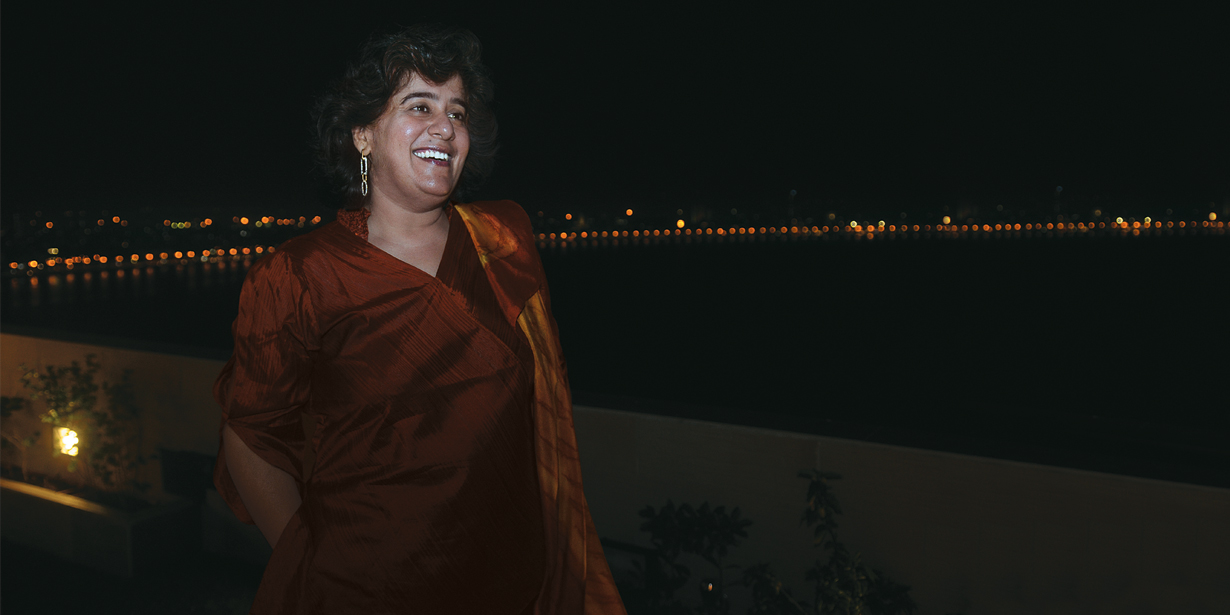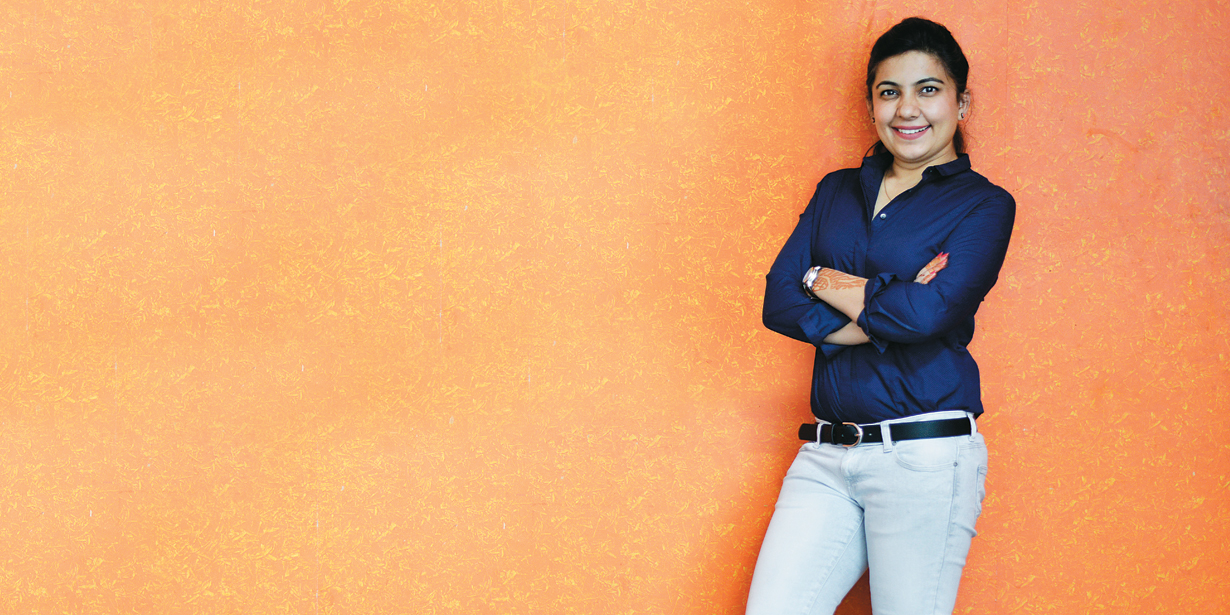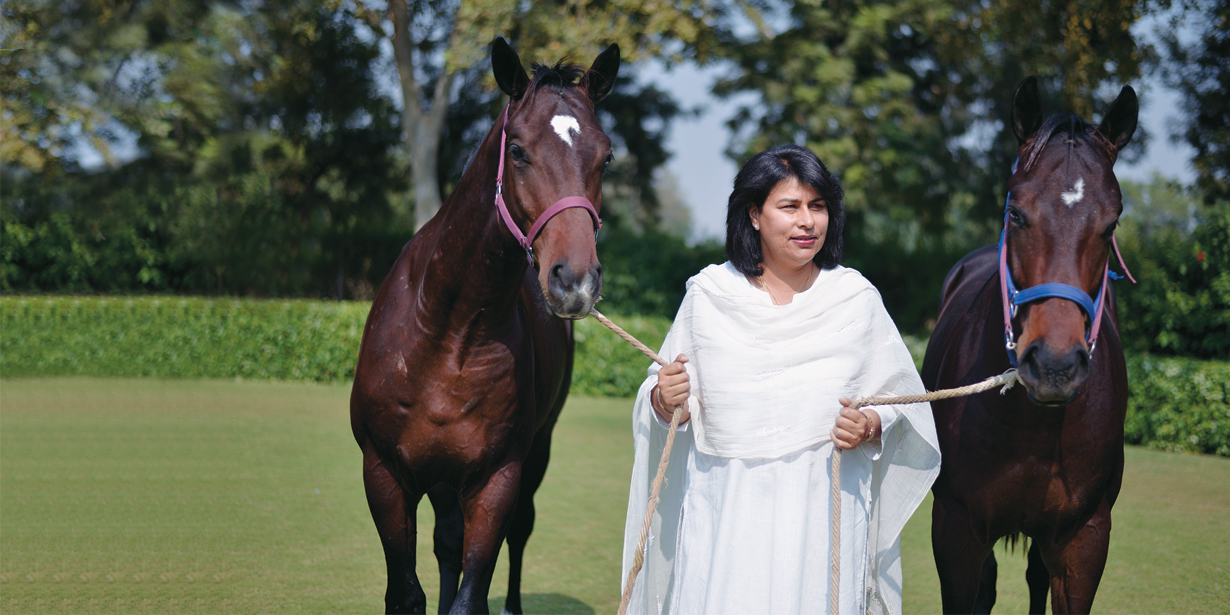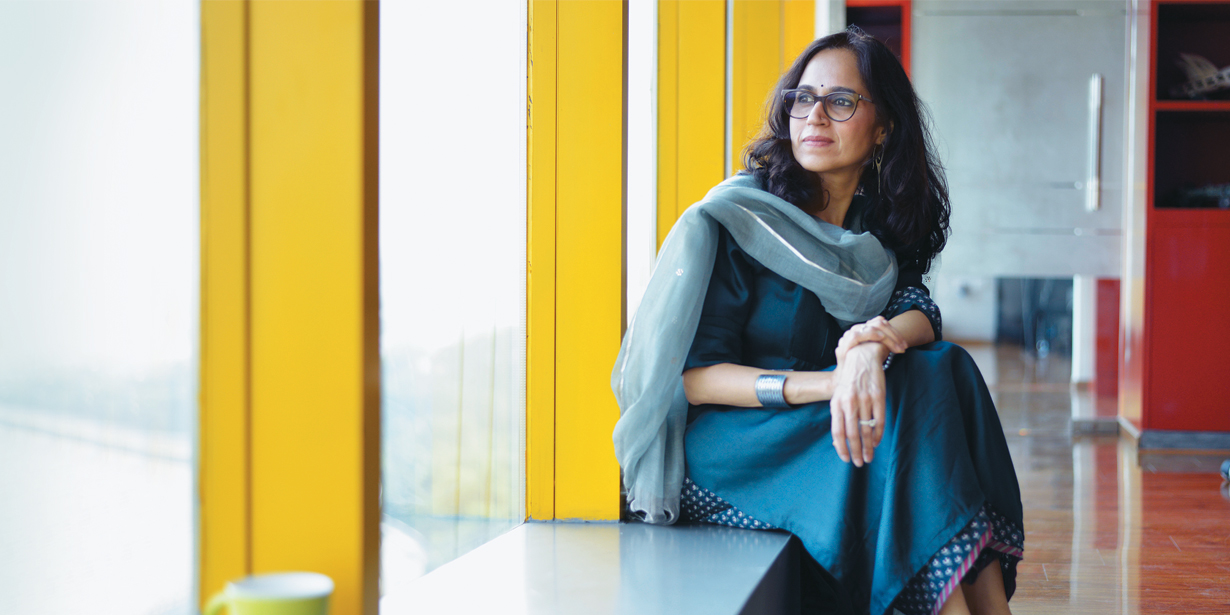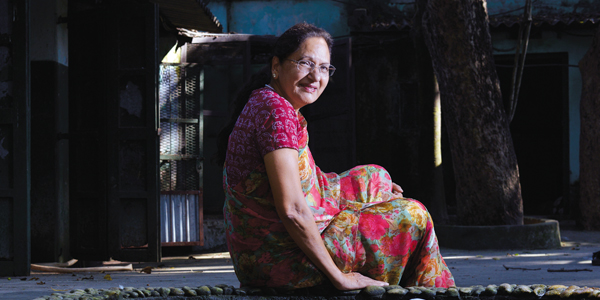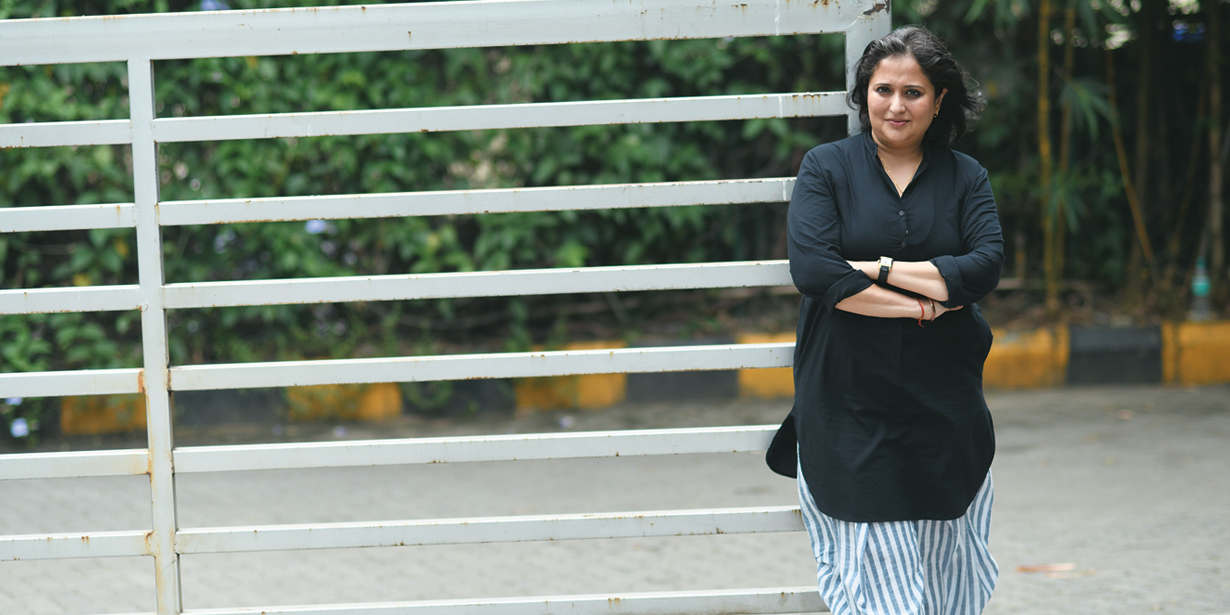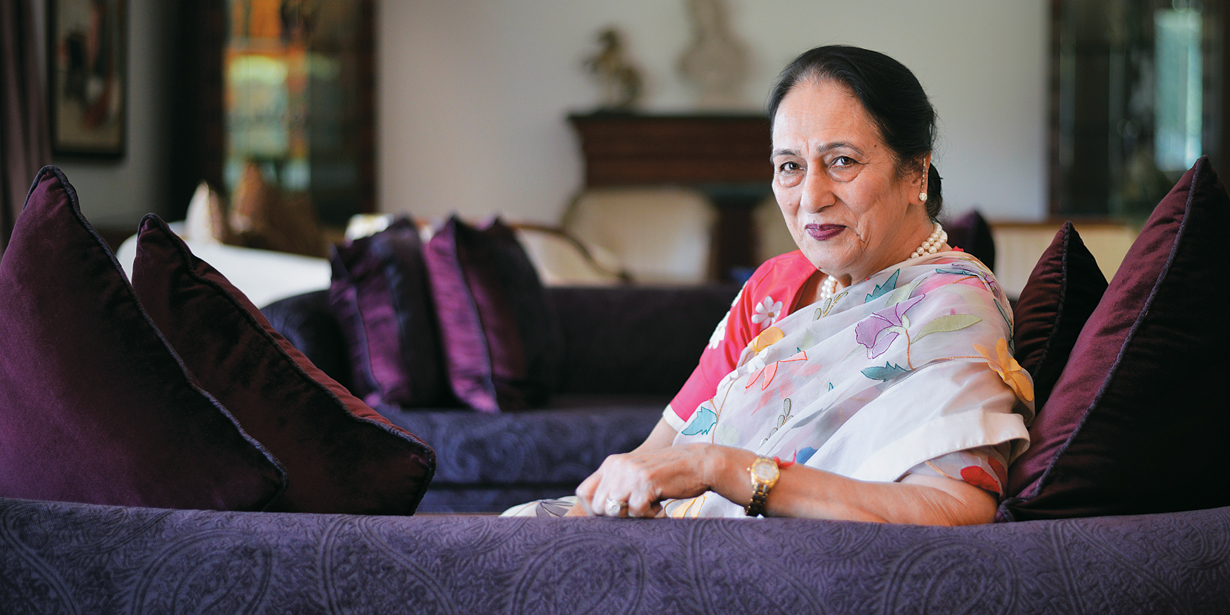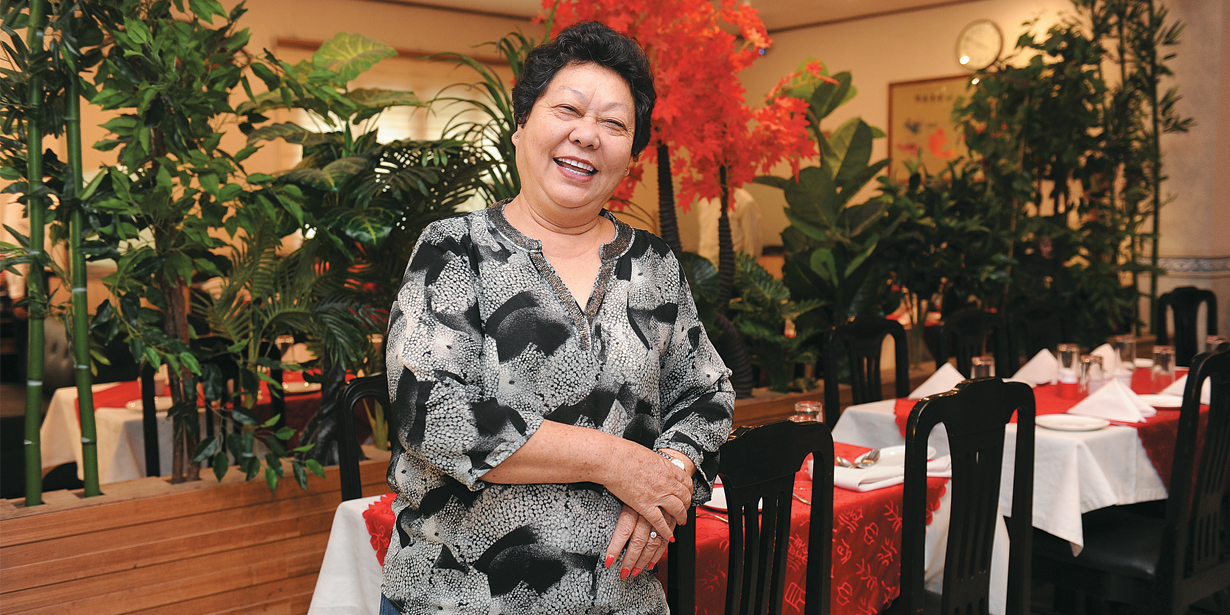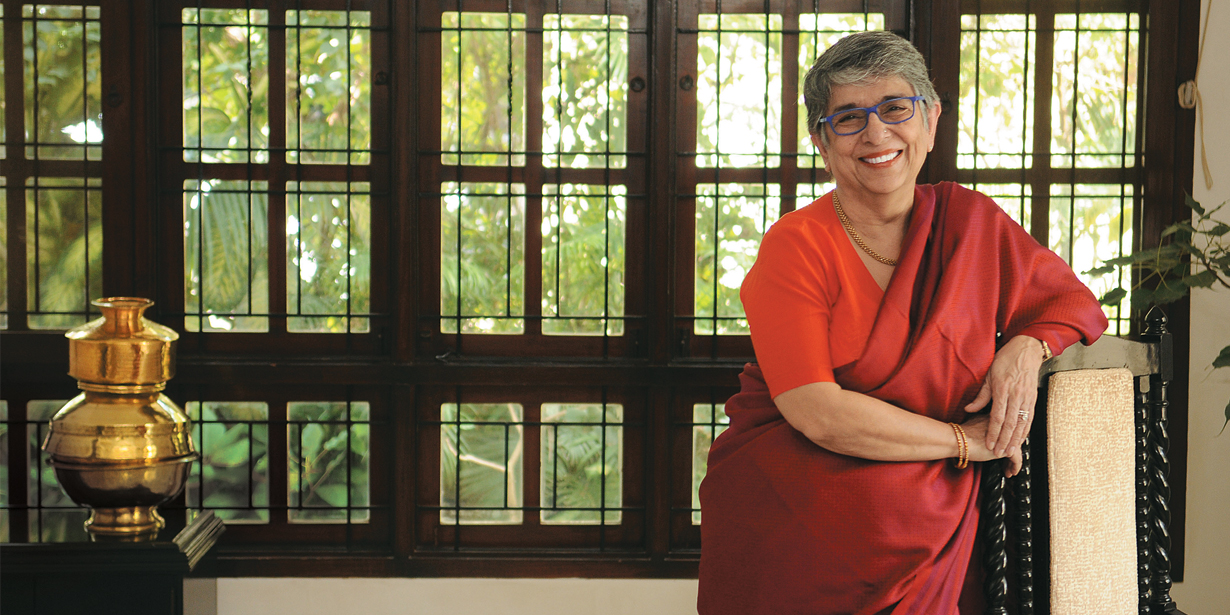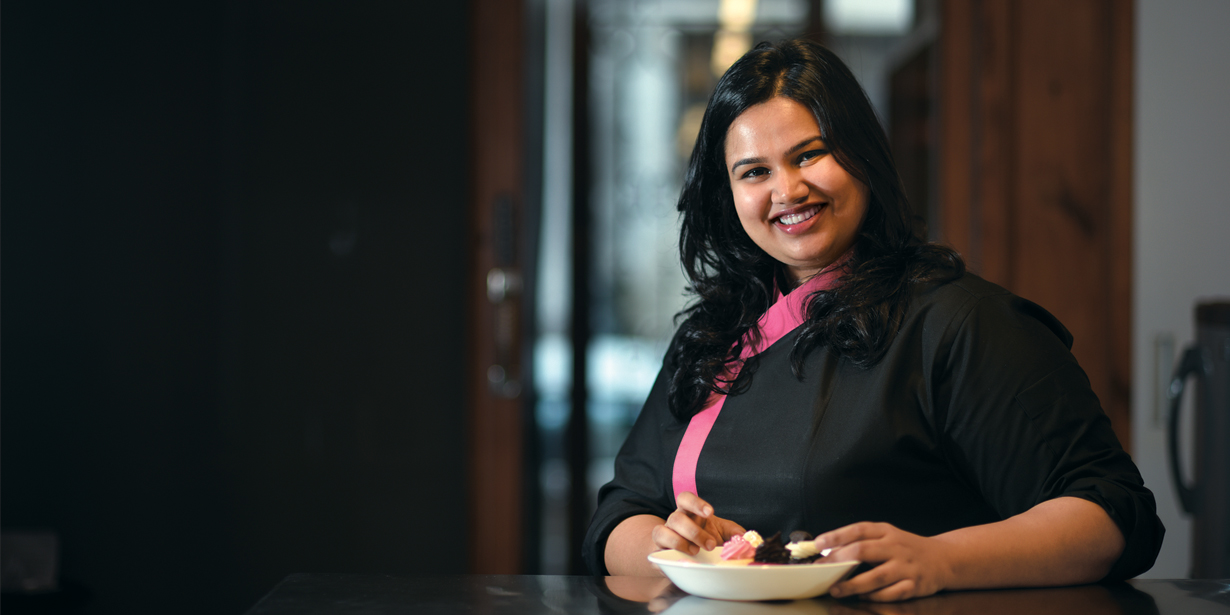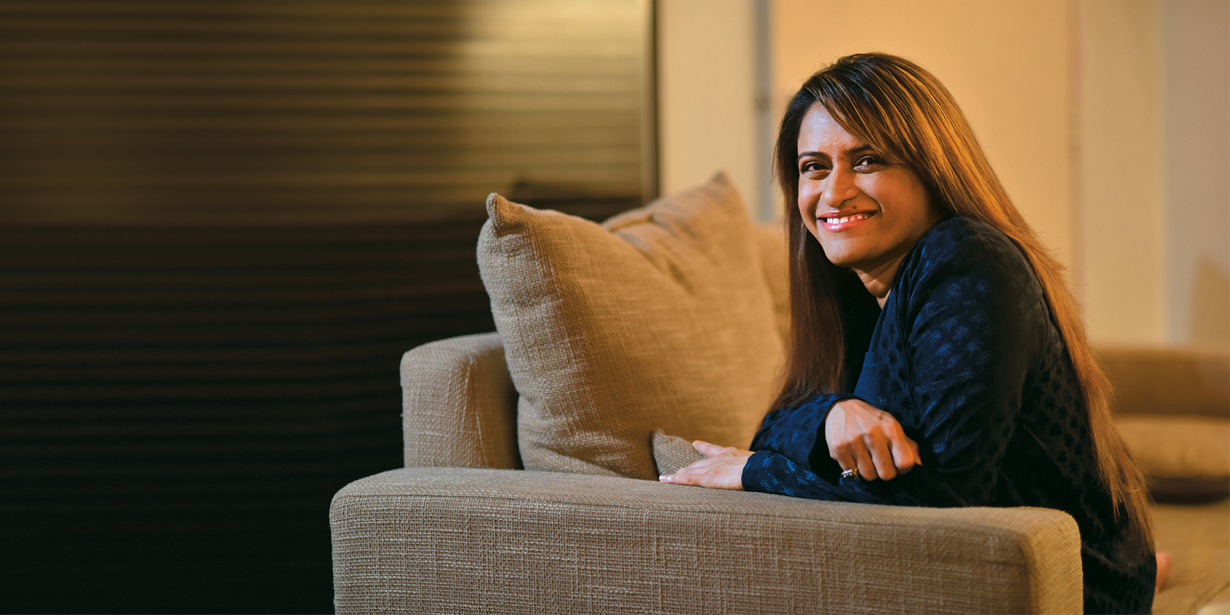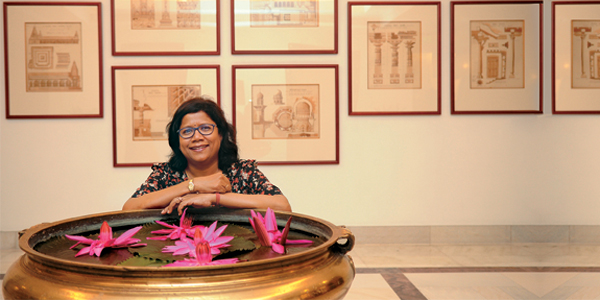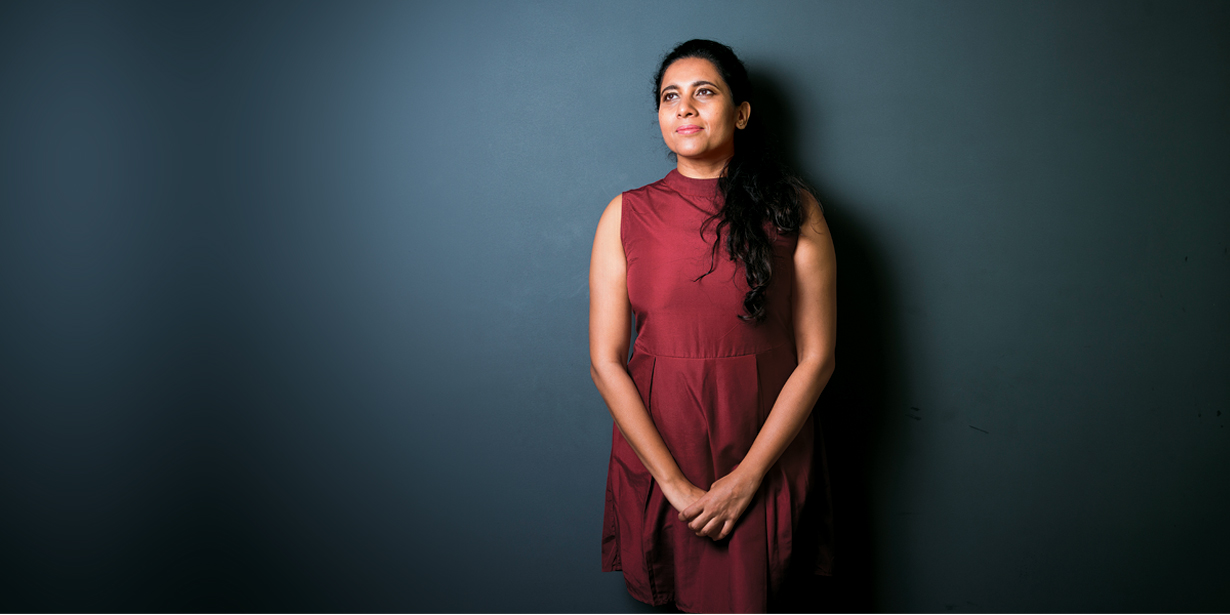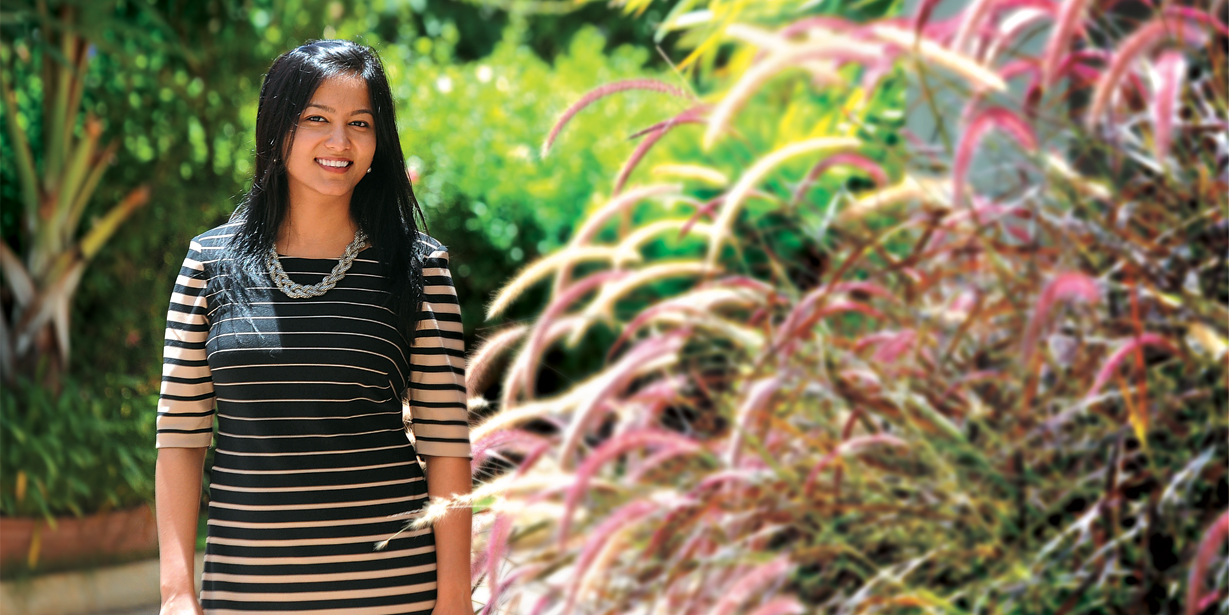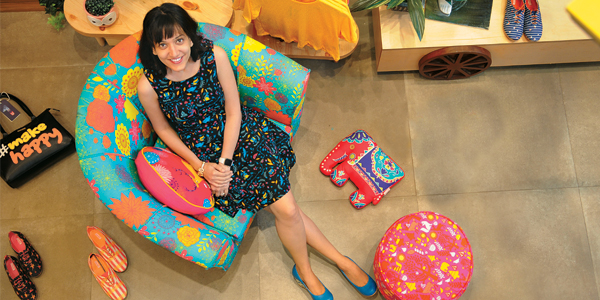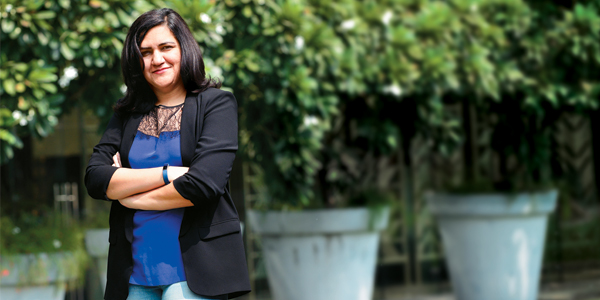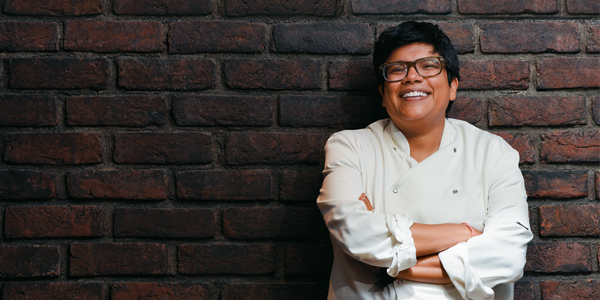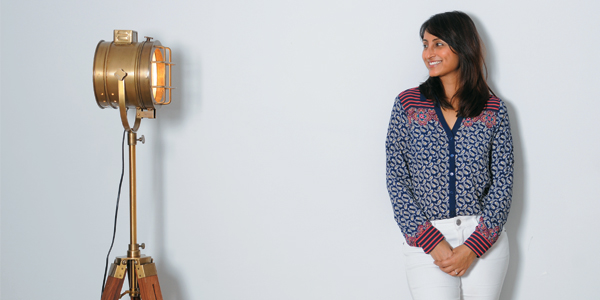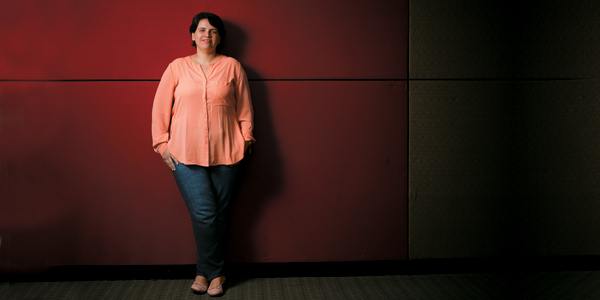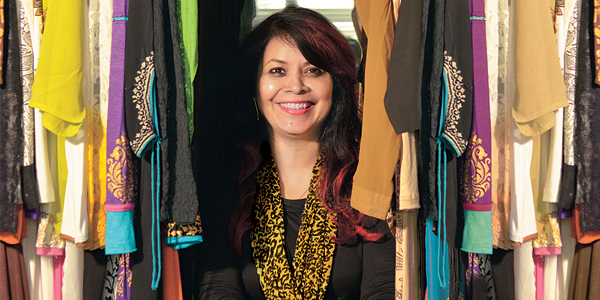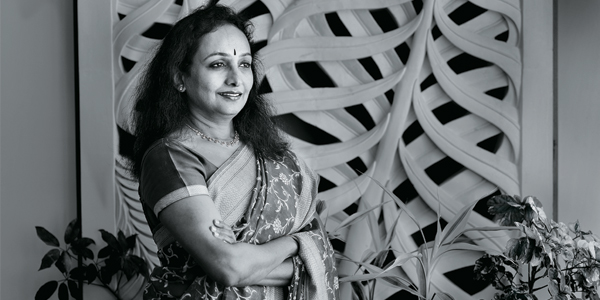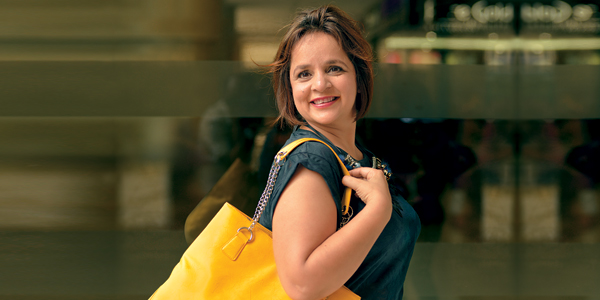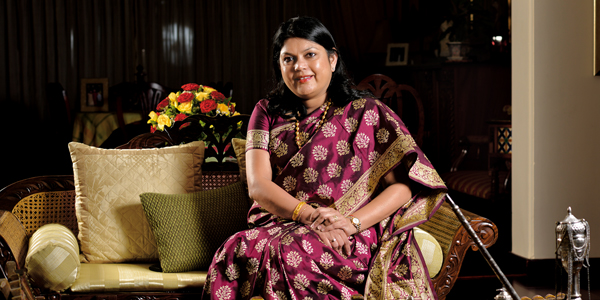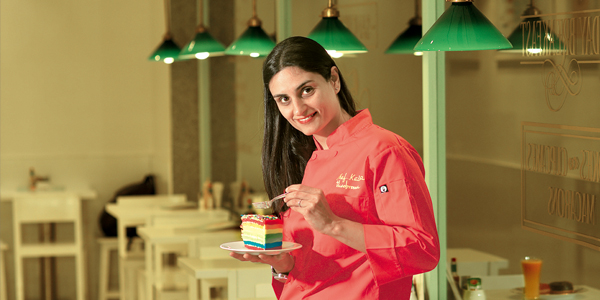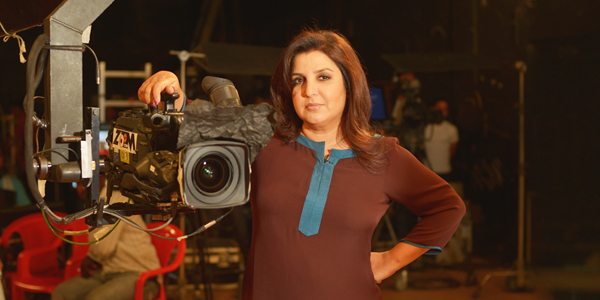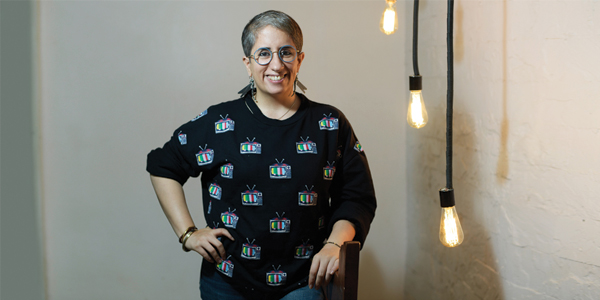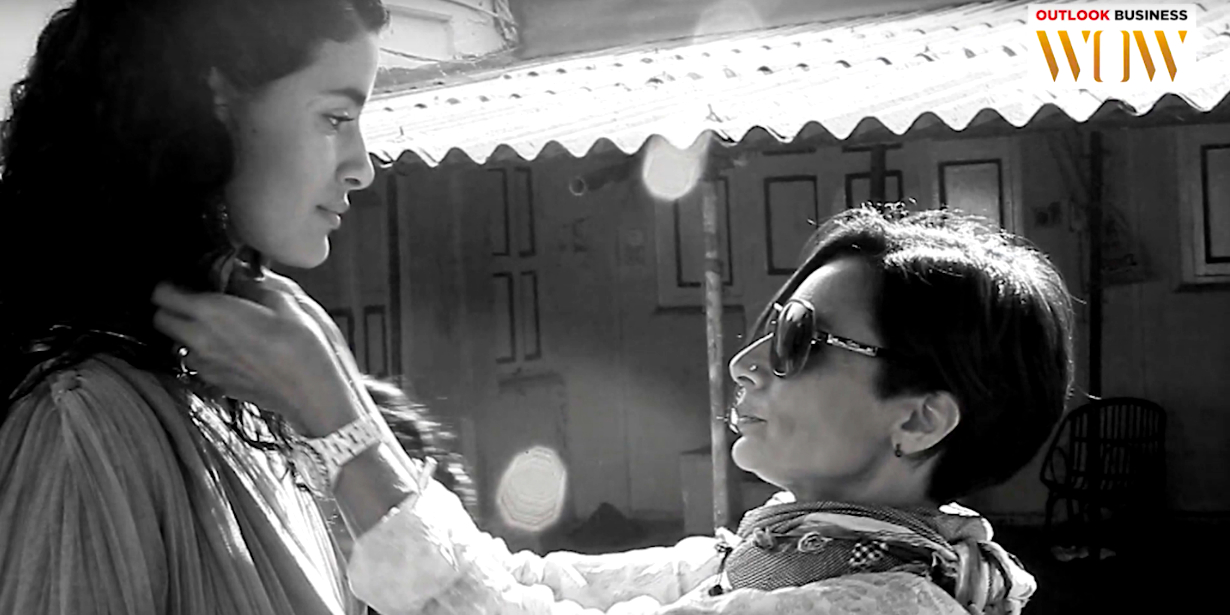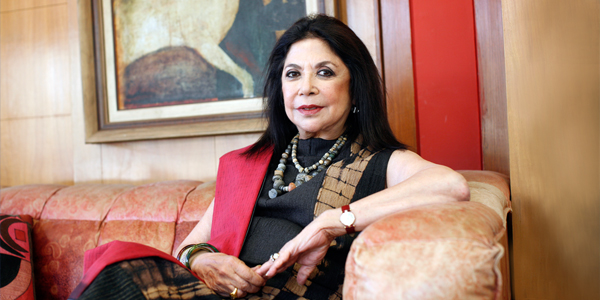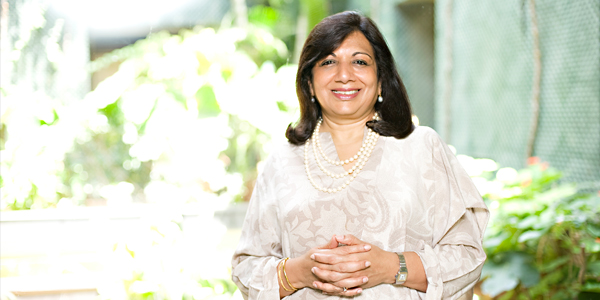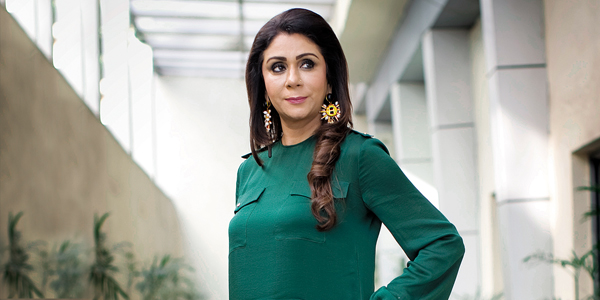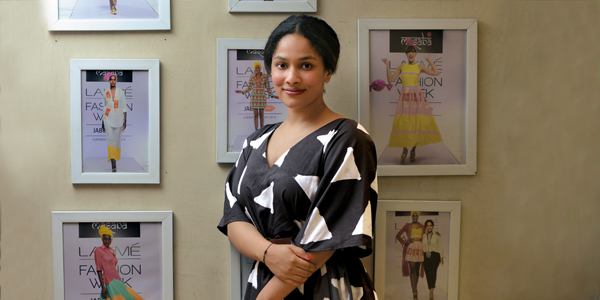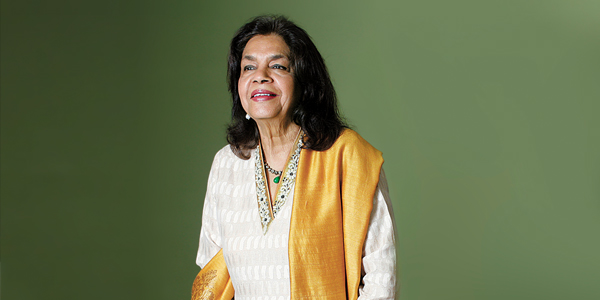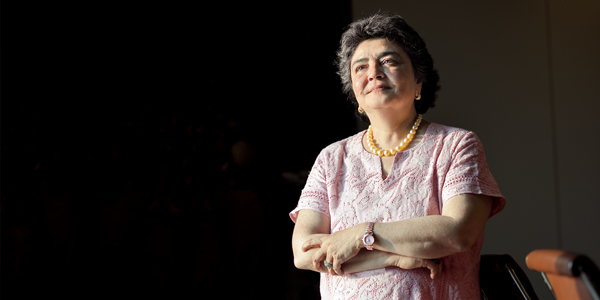With decomposable pads made from corn and bamboo, she is bringing a revolution in menstrual hygiene : Deepanjali Dalmia
Determined to start a ‘Period Revolution’, Deepanjali Dalmia gave up an enviable Manhattan job and got cracking on an eco-friendly sanitary pad
As the ‘hero’s journey’ goes, the protagonist’s awakening is marked by three stages – the ‘departure,’ where they go on an adventure; the ‘initiation,’ where they encounter a crisis; and the ‘return’, where they come home transformed. The entrepreneur’s path is similar, and Deepanjali Dalmia went through this life-cycle too, when she was all of 24. In Manhattan living the American Dream, she faced an existential crisis and her ‘return’ was marked by the founding of Heyday. Fashioning all-natural sanitary pads out of bamboo fibre and corn which are as tender on women as they are on the environment, Dalmia was not only selling a product, she was ushering in a new way of life.
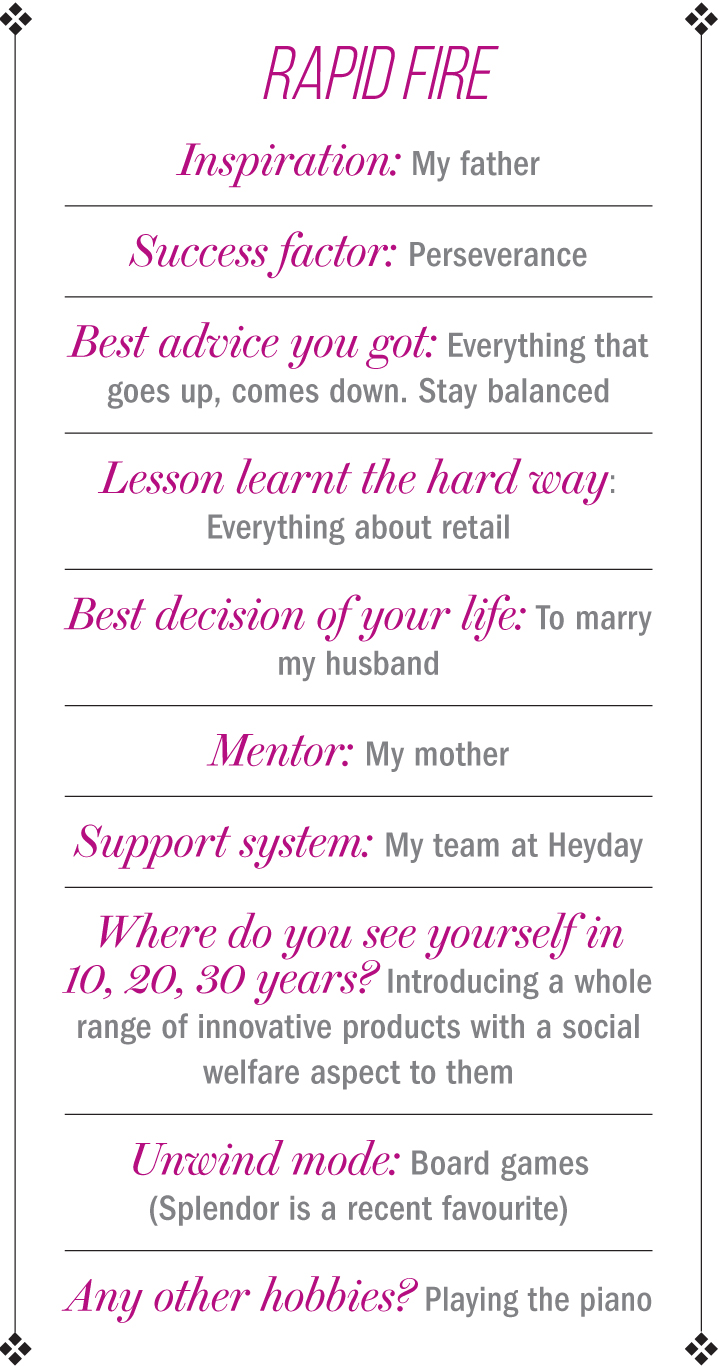 Born and raised in New Delhi in a household of free-thinkers, she attended two premier all-women’s institutions as well — Carmel Convent School in New Delhi, and the Barnard College of Columbia University in New York, where she majored in Economics and Psychology as a ‘Leadership Scholar’ in 2013. “Both institutions provided the perfect nurturing ground for me to understand the gravity and sensitivity surrounding women’s issues,” she says.
Born and raised in New Delhi in a household of free-thinkers, she attended two premier all-women’s institutions as well — Carmel Convent School in New Delhi, and the Barnard College of Columbia University in New York, where she majored in Economics and Psychology as a ‘Leadership Scholar’ in 2013. “Both institutions provided the perfect nurturing ground for me to understand the gravity and sensitivity surrounding women’s issues,” she says.
At 23, with an Ivy League degree in hand and Manhattan’s mavericks at her feet, the allure of a high-paying finance job was undeniable for Dalmia. “I felt honoured when Ernst & Young (EY) appointed me as a financial analyst,” she recalls. At EY, she honed her financial know-how, and was part of a high-flying business advisory team. But soon, by 24, the appeal had given way to ennui.
Her discontent was only fed by the TED talks she would wolf down by the dozen on weekends. Change-makers didn’t simply wax poetic about social change — they spoke of making a difference to real lives. “A little over a year into my job, an alarming figure left me shocked. It was quoted during a Ted talk by Arunachalam Muruganantham — only 12% of Indian women used personal hygiene products such as sanitary napkins, tampons and menstrual cups,” she recounts.
The more she read, the more disturbing the picture became. Complacency seemed to have set in to the industry after the invention of the sanitary napkin. The only innovations had been around size, absorbency and the addition of wings, fragrance and so on.
“I was appalled to find that harmful plastics, dioxin, antibacterial agents, bleaches, perfumes and a host of chemicals constitute 90% of a sanitary napkin. They not only cause skin infections, but also makes one vulnerable to urinary tract infections and in extreme cases, cervical or ovarian cancer and miscarriages. I took it upon myself to develop an all-new natural alternative,” she says.
Strong winds of change were headed her way — for she quit her job, moved back to India within a year in 2015, and made an almost diametric change in her industry. But, Dalmia was unfazed.
“There is comfort in being in your motherland, but the working culture is very different and one has to be very persevering here. The close-minded thinking in society is infuriating too, sometimes,” she says.

There was also the shift to manufacturing. “It wasn’t easy, and I mostly understood things by failing at them,” she says. “I did not have an engineering or science background, so I decided to play to my strengths and assembled a small team of young innovators (including environmental scientists and lab technicians).”
Partnering with a raw material supplier in Qingdao, China, who grows organic raw material through vertical farming in soil that has been kept away from chemicals for over a decade, the team worked with researchers in National Accreditation Board for Testing and Calibration Laboratories. Two and a half years later, they proudly wielded Heyday’s final prototype.
It was an all-natural sanitary pad made from organic and biodegradable plant-based fibres of corn and bamboo using a highly specialised — and patented — ‘spunlace’ method. “We utilised corn fibre for its softness and bamboo fibre for its absorption and antibacterial properties. We use no chemicals in the raw material growth and processing,” she says.
Heyday pads safeguard a woman’s health, while also causing no harm to the environment. On average, 448 million pads are dumped in landfills annually in India, polluting acres of land with no avenue for decomposition for 450-500 years. A Heyday pad, however, decomposes within six months to two years of its disposal.
They spent over two years setting up their manufacturing unit in China — which now has 12 production lines functioning in three shifts daily, with a plant production capacity of 448 million pads and diapers annually. “We found it more economically viable to set up a unit in China than to import the organic raw materials. That being said, the basic cost of producing our natural product is a lot higher than that of producing synthetic ones, and the import duty is an additional two-three per cent of the cost. The term organic is used rather loosely here in India, because the quality check mechanism is weak. Ours might be the only product that is truly organic,” Dalmia says.
Heyday products were introduced in a select few retail chains in Delhi and Gurugram in October 2017. Within the first quarter, they understood that synthetic pads were preferred by an ever-burgeoning base of women users. The Heyday team was getting closer to the perfect product-market fit, save for one issue — the pricing, which continues to bump their product off to the premium category — a drawback Dalmia acknowledges. The two variants of their seven-pack are roughly Rs.100, while the 14-packs are Rs.200 — roughly Rs.10 to Rs.20 higher than the premium offerings of their MNC counterparts. “We have not been able to make the product extremely cheap to be affordable at the rural level yet. Hence, we have stuck with the model to reach the current users of pads and encourage them to switch to natural alternatives,” she says. Their sales are improving. The overall revenue in the previous fiscal was Rs.5 million and, this year, it has already touched Rs.12.5 million.

The top grossing markets for Heyday are Delhi, Gurugram, Mumbai, Bengaluru, Jalandhar, Kochi, Kolkata and Guwahati, where they have over a hundred retail touchpoints, including chains such as Spencer’s, Le Marche and Modern Bazaar.
In March 2018, Dalmia got married and shifted base to Kolkata. This coincided with another, equally staggering event — her product hitting the web. “Juggling the shift after marriage with this crucial phase at the company was challenging, I can’t deny that,” she says. Heyday had established their base in Delhi, and that is where their main warehousing unit remains.
Dalmia took the shift as an opportunity for multi-city expansion and moved into chains such as Spencer’s and Frank Ross Pharmacy. Their corporate team now operates out of Kolkata, while their distribution centres are spread across India. “Some retailers were averse to stock new products as they’re comfortable with the margins and volumes they get from existing brands. However, to our surprise, more than 50% of the retail chains we approached saw the potential of the product and pushed for placement. We would also offer them better margins to incentivise them,” she says.
Besides, tapping into the e-commerce market was a critical decision in their growth story. Today, online sales constitute 40% of their overall sales. Their online retail channels include Nykaa, Amazon, and their own website. “We are growing at 40% month-on-month, so our main focus remains to educate and empower users with the right knowledge. As of today, we have converted 350,000 women to use Heyday pads, and we aim to convert 800,000 women by the third quarter of 2019,” she says, adding, “I want to start a Period Revolution, and encourage women to make educated personal hygiene choices.”
Dalmia puts her money where her mouth is, too. Heyday has assembled a 12-strong all-women workforce in their corporate office, and Dalmia states that their collective gumption and grit can move mountains. “Every member is passionate about the product, which makes working easy and fun,” she says.
She says that educating people and turning them into evangelists is a key piece of the puzzle. Their packaging and marketing content, therefore, is focused on generating rapid awareness, made evident by their social media activity. You will find almost no mention of the brand in a majority of their posts — just relentless championing of the cause. “To truly take our product to the masses, traditional forms of media that manufacturers of synthetic pads have been using, would be ideal. However, we are being frugal and making the most of digital advertising to get the word out.”
Heyday remains bootstrapped. They aim to enter more offline as well as online retail chains, and they will introduce baby diapers within the next month, and panty liners around the same time, with the same virtues as their sanitary pads. On testing the diapers, they found more than 40% of the babies in the sample slept better at night — perhaps also from knowing that they are already taking their baby steps and doing their bit to save the planet.







